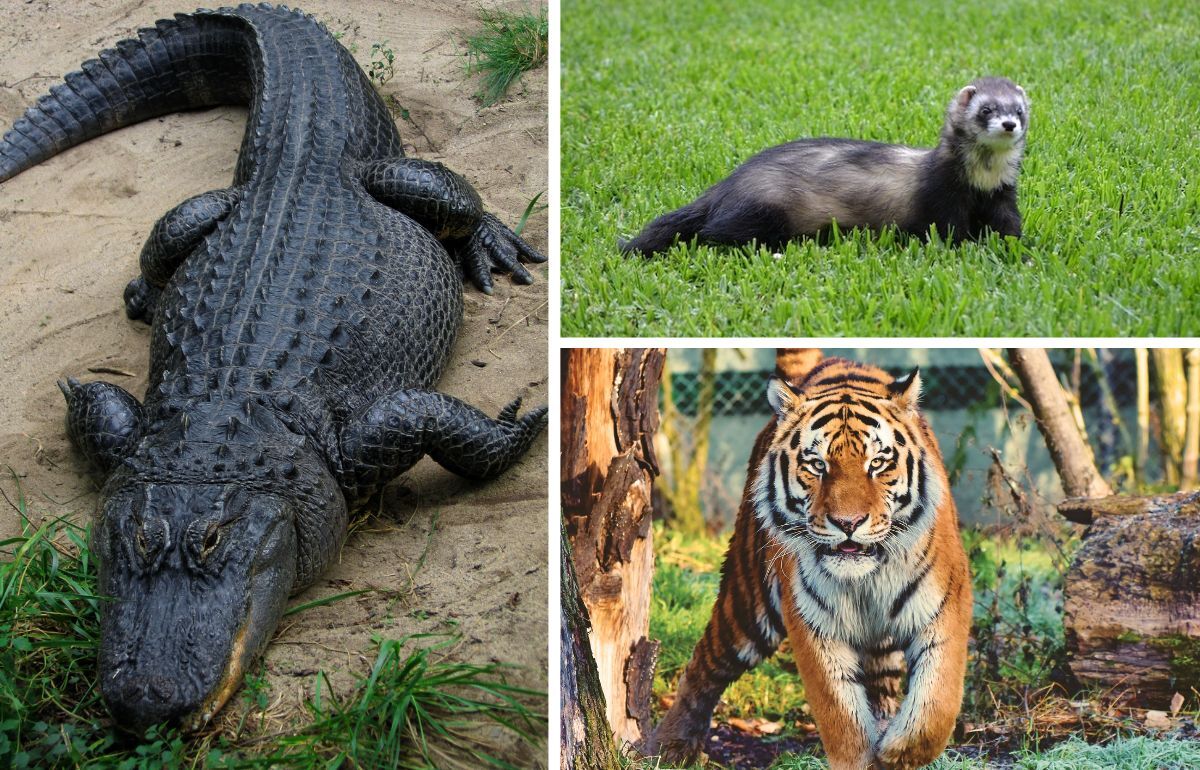Humans have long been fascinated with taming animals. It’s how our canine friends made their way into our homes and how we trained wild cats to control rodent populations to keep our harvested foods safe. We even took on native wildlife like horses and elephants and domesticated them.
But there is a fine line between animals that are illegal to own and exotic pet animals. Many government bodies and animal advocacy groups fight to ban the trade and keeping of exotic animals like African Pygmy Hedgehogs, Sugar Gliders, or venomous snakes to protect animals and their survival.
Animals that are Illegal to Own
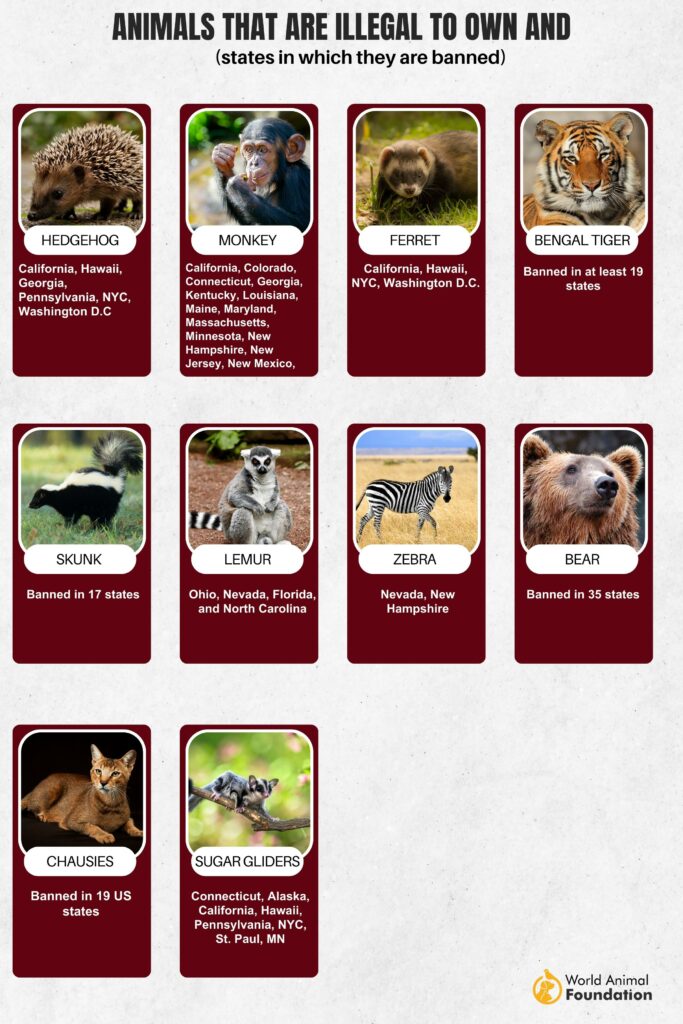
Exotic animal laws by state exist for many reasons. Some of those laws are punishable by hefty fines. These laws are meant to keep people safe and our environment and wildlife from invasive species. Many more exotic animals, like big cats, are illegal for the sake of the species.
Here’s what you must know about keeping exotic or banned animals or wild animals in private ownership.
Hedgehog
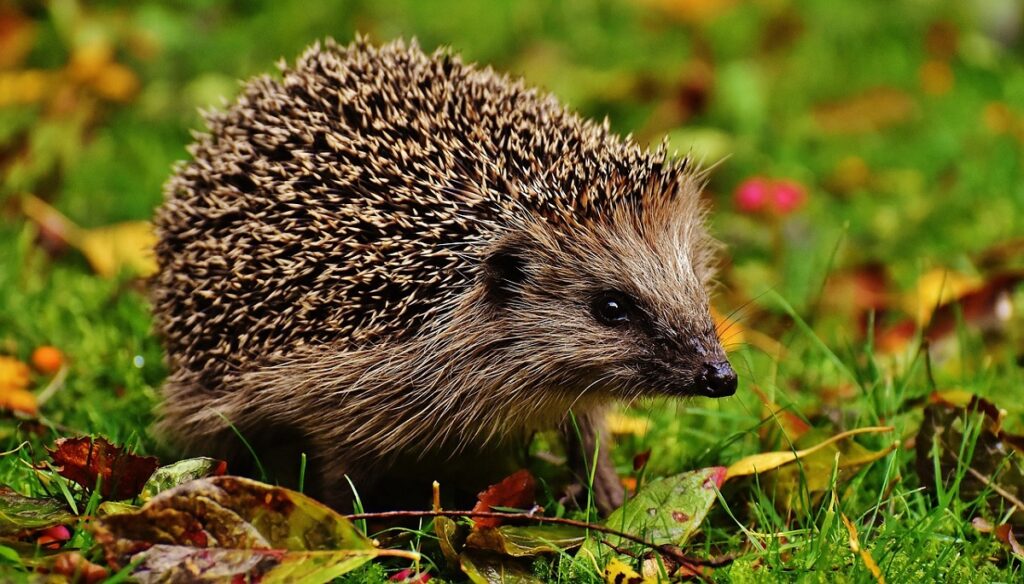
Hard to believe this adorable cousin to shrews and moles can cause so much grief. African pygmy hedgehogs are illegal to own in California, Hawaii, Georgia, New York, and Pennsylvania because they can transmit diseases like salmonella and ringworm.
If you’re curious about owning a hedgehog, you should know this creature isn’t that fond of humans or being handled. They show their displeasure by rolling into a ball and defending themselves with their quills.
In Europe, hedgehogs are represented in art, culture, and folklore. They may be garden and house guests, but they’re not house pets.
Monkey
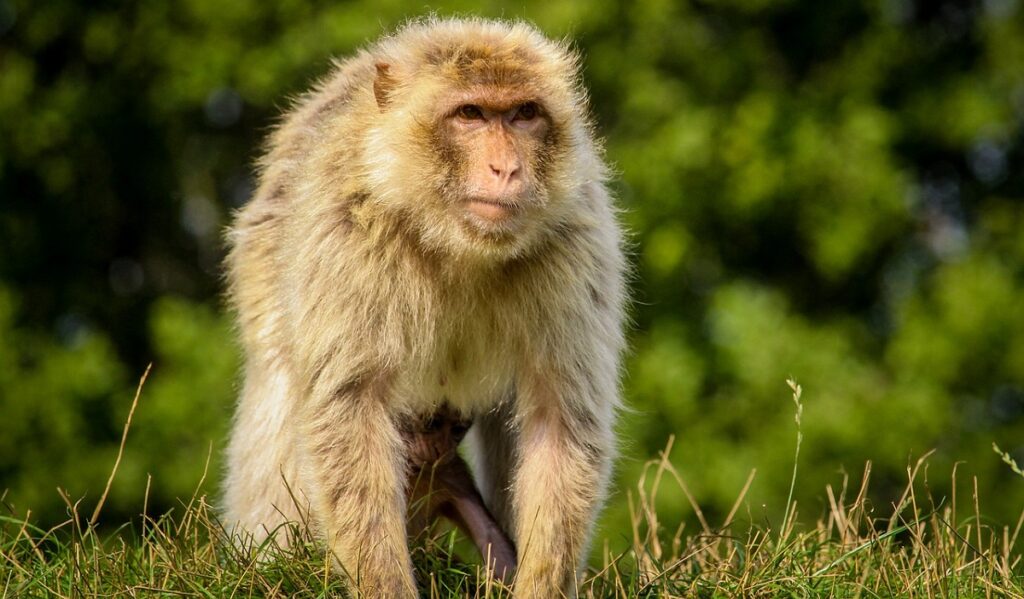
Monkey is a moniker for different primates, and understanding if you’re legally allowed to own one depends on the primate classification: monkey or ape. Most states have specific guidelines about which type of exotic species of monkey you can own. Exotic pets in Florida are not the same as in other states.
The most common breeds in the monkey family and owned as pets are the following:
- Tarsiers
- Tamarins
- Chimpanzees
- Squirrel monkeys
- Macaques
- Capuchins
- Marmosets
- Spider monkeys
- Guenons
While these human-like animals capture our hearts, they seldom make good pets. They demand massive amounts of care, attention, and space and can display aggressive behavior, which can cause severe injury. Rules vary by state; many owners must obtain a permit to keep this wild animal.
Arizona, Mississippi, Indiana, and Tennessee permit pet monkeys but not pet apes. Knowing the difference and the laws is wise. Wisconsin, Texas, and Florida allow only specific types of monkeys.
Companion animals like a capuchin monkey are only allowed for residents with disabilities in Illinois, and Connecticut is working on banning monkey pets eventually through a phase-out program.
Ferrets
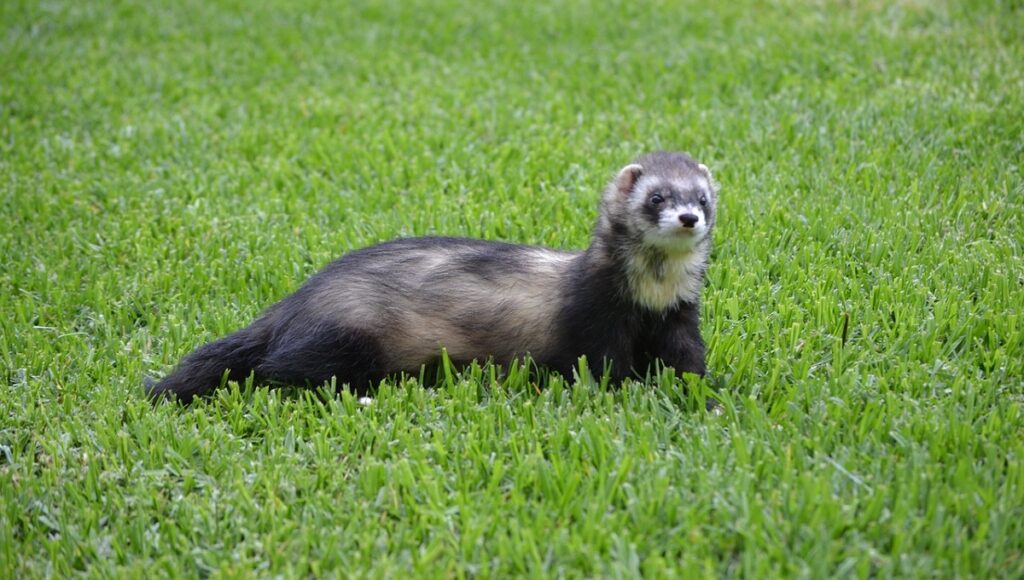
Some animals are good pets naturally. While humans domesticated ferrets 2500 years ago, they’re challenging pets with unique needs.
Ferrets are carnivores with sharp pearly whites. Their cousins include martens, weasels, wolverines, and badgers. You may need a permit, and California and Hawaii ban ferrets.
Most banned animals tend to carry diseases like rabies or are detrimental to other animals. Since permit or rabies vaccination are challenging to mandate, authorities require a complete ban on illegal animals.
New York City and Washington D.C. also banned this notorious escape artist that can harm ecosystems. Sadly, ferrets are often used in medical research facilities.
Bengal Tigers
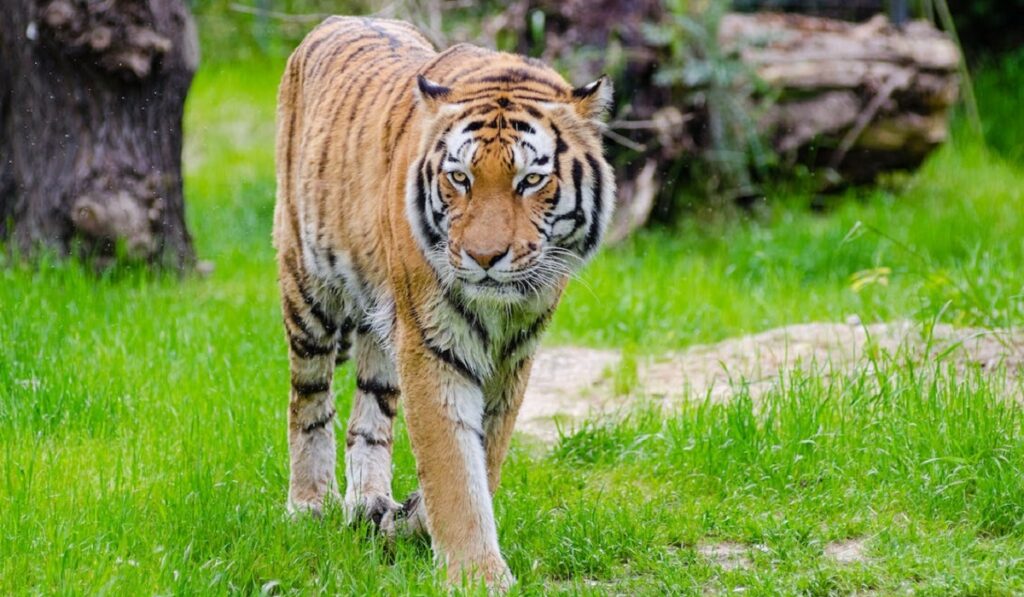
Bengal tigers are magnificent wild cats on the brink of extinction in their natural habitat. To date, there are more captive tigers in the USA than free-living tiger jungle cats in their native country. Education and conservation have helped secure these big cats’ fragile hold on survival in the wild.
Bengal tigers can never become like domestic cats and are an illegal possession subject in most states. The fact remains that pet owners underestimating this dangerous animal and its needs can lead to trouble. An adult tiger is a public safety concern.
Bengals are not exotic pets legal in Californiaor 18 other states.
Still, these formidable jungle cats are endangered. A big win for big cats as the U.S. Senate passed a bill to suspend private ownership.
Skunk
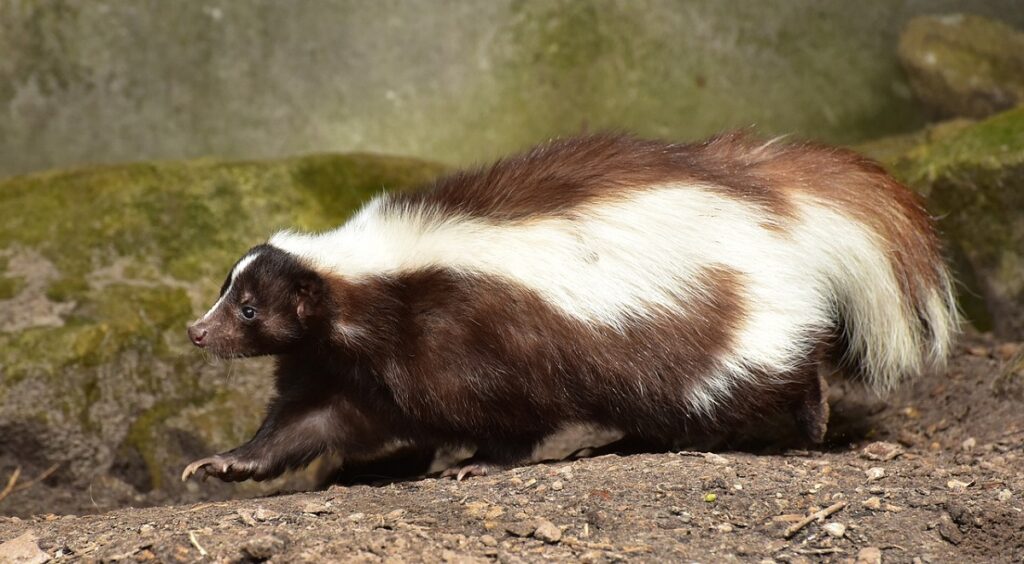
Skunks are super cute despite their pungent odor. Even de-skunked, this animal keeps its destructive habits as it forages for food. But its stink and aggressive behavior aren’t why they’re banned in 17 states. There is no rabies vaccine for skunks, meaning they can transmit the disease to other animals and humans.
Skunks saunter through the streets at dusk and dawn, playing a crucial role in our environment. Despite their stink, they’re beneficial.
Keeping a privately owned rescue pet skunk with the offending scent glands removed can still be a medically expensive endeavor.
Lemur
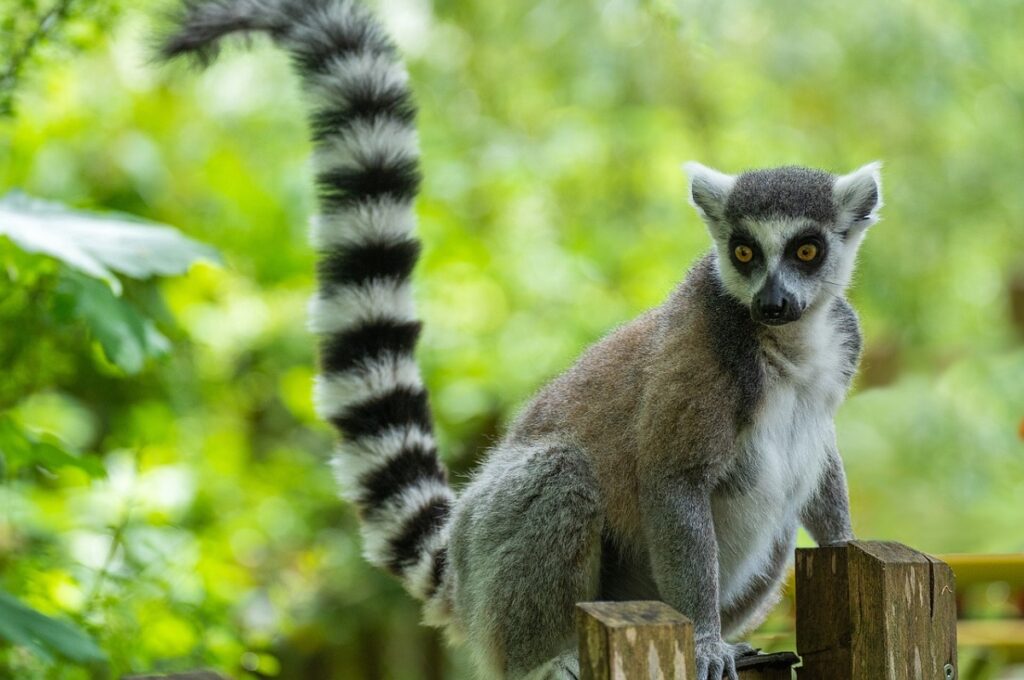
Residents of Ohio, Nevada, North Carolina, and Florida must know it’s illegal to own a lemur. Many more states prohibit the sale of this primate family member; others require permits to keep certain species like legal exotic pets in N.Y. Rules typically vary state by state on banned pets, and owners underestimate the responsibility to keep wild animals in private residences.
This social animal needs its family. Females might spray your entire house to attract a male. They’re also raucous and loud. They can also transmit and carry zoonotic diseases and pick up human diseases.
Zebra
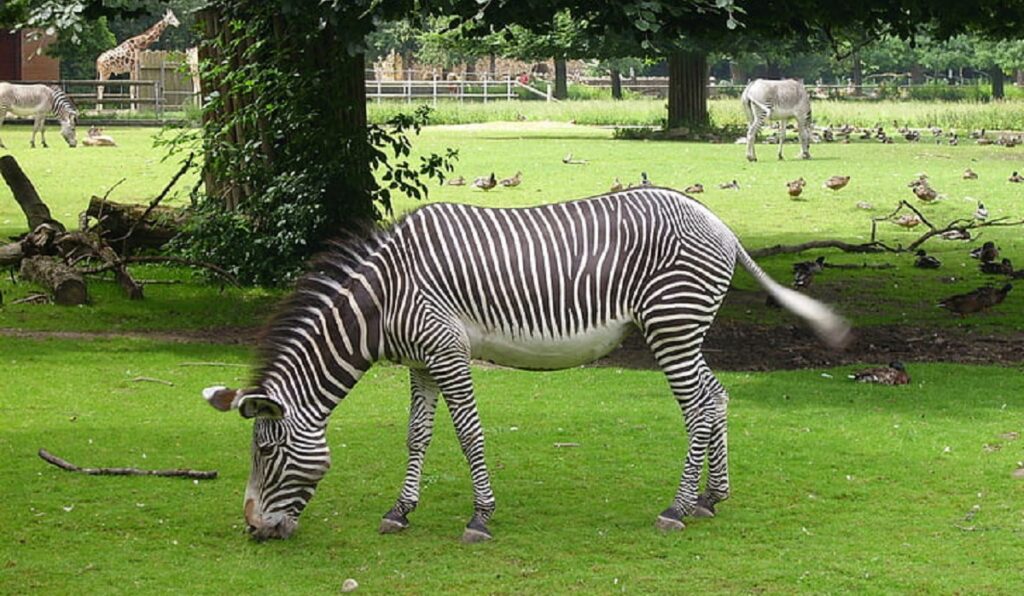
Sometimes pets make the news, like when an adult male zebra attacked its owner and nearly ripped the man’s arm off. Zebras belong to the Equus genus, the family of horses, donkeys, and asses. Although owners domesticated their animal cousins, zebra are explosive and dangerous despite their docile appearance.
Nevada, New Hampshire, and Washington D.C. ban zebra ownership. Zebras are extremely difficult, if not downright impossible, to domesticate. They’ll try to escape. Once free, they’re impossible to capture, and the story often ends with a dead zebra.
Zebras are gentle and protective toward their offspring and form strong bonds. They’re illegal to own in many states.
Bears
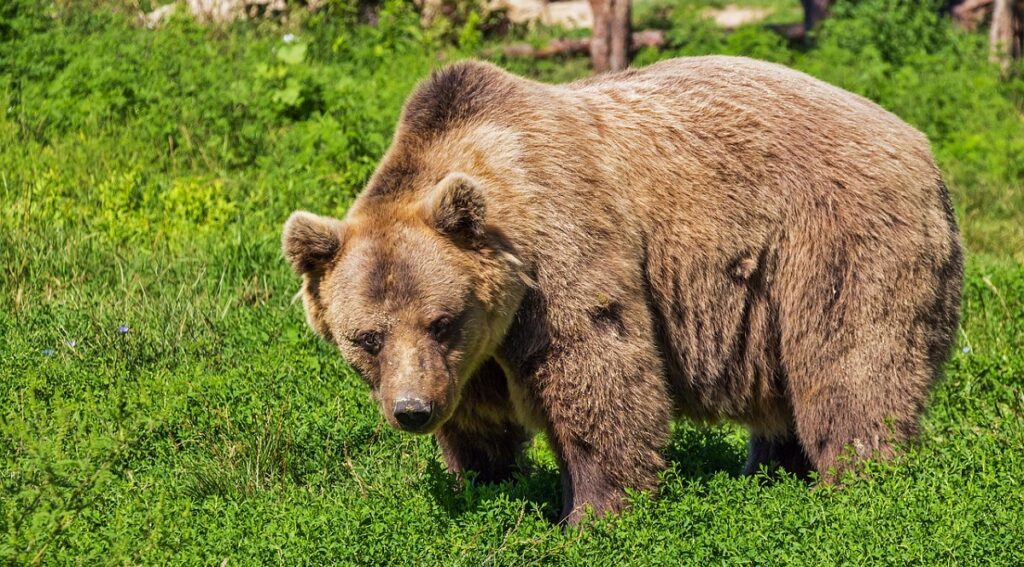
Black bears and grizzly bears are outlawed from ownership in Wyoming. Other states prohibit only specific species of bears, and the law doesn’t include institutions like zoos, rescue facilities, and educational forums.
Louisiana has a tough stance on bear pet ownership, including polar bears, grizzly, and black bear types. However, Alabama, Missouri, Oklahoma, Rhode Island, and Tennessee prohibit black bear ownership.
All bears are powerful creatures with huge demands for food and habitat requirements. Owing a bear is not as seen on T.V. It takes massive amounts of resources and cash to keep them healthy and people and animals safe from the naturally predatory instincts of this omnivore.
Ursidae family includes the brown bear, American and Asian black bears, and polar bears.
Chausies
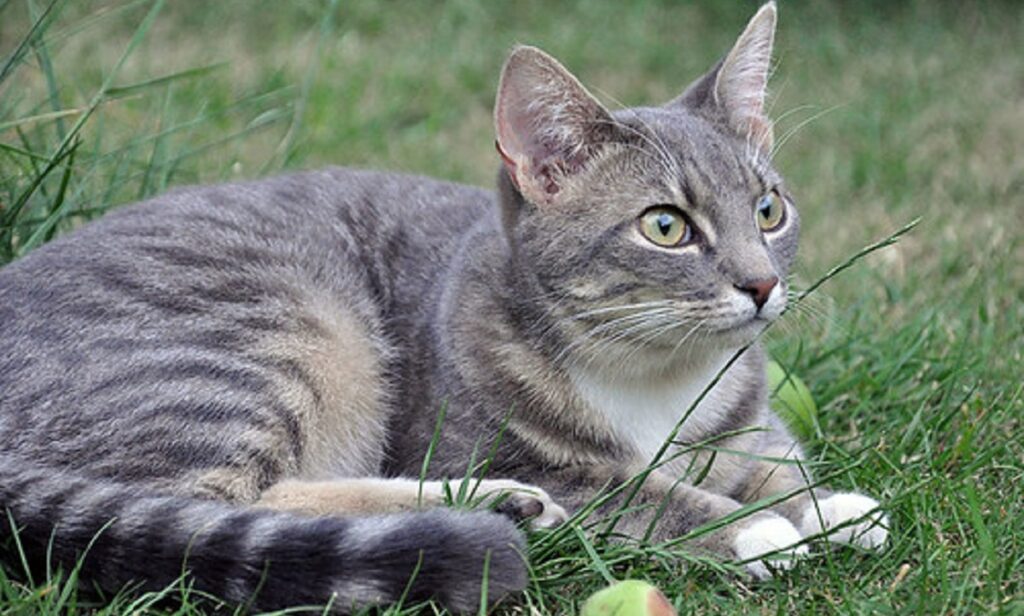
Chausies might resemble domesticated cats, but these gorgeous hybrid cats have specific needs and are illegal to own in 19 states. Chausies are much larger than other domestic cats and need ways to release their energy. They also require costly medical care as many develop allergens (cats can’t be vegetarians) and have expensive food requirements.
Pet Chausies can have destructive habits. This large cat can exhibit antisocial behavior and might prefer to use your bed or sofa as their litter as they’re notoriously difficult to train. Like other big cats, many owners might require renewable permits or licenses and proof of suitable enclosures to prevent escaping.
Opinions on whether Chausies make good pets are divided. Fourth-generation chausies might display a domestic temperament and live happily alongside the family dog. Hybrid cats can keep the characteristics of their ancestors.
Sugar gliders
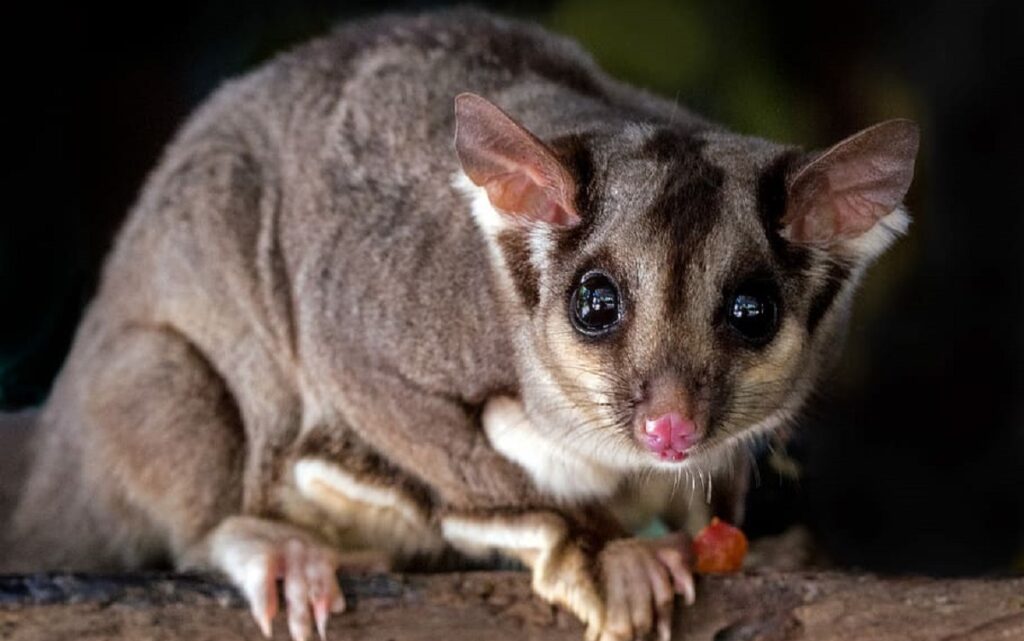
It’s estimated that the exotic pet trade is worth billions and growing. Sugar gliders are marsupials like koalas and kangaroos and are traded as popular pets like consumer goods. They’re trending on the pet scene despite being illegal in several states and cities: Alaska, Hawaii, Pennsylvania, California and St. Paul, and NYC. Other states may require special permits.
Although seriously adorable, this little critter will keep you up at night. Sugar glider pet owners will have a demanding job supplying highly specialized nectar-rich drinks.
Further, like other species, sugar gliders need other marsupial friends and a larger habitat to explore. A private residence might make them unhappy.
Illegal Pets
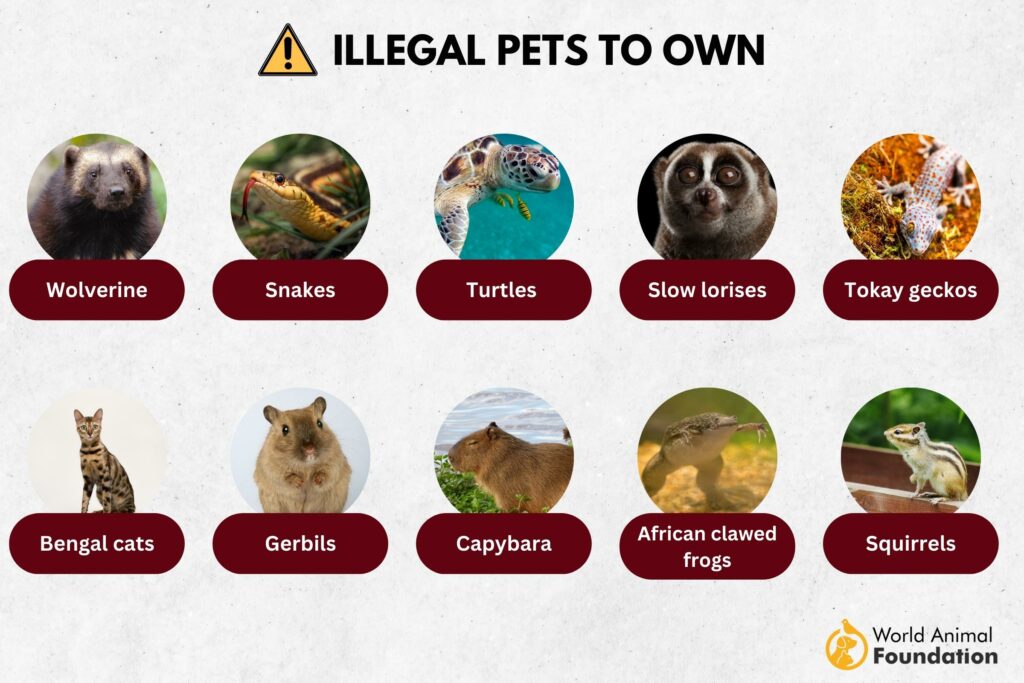
The exotic allure of owning a unique pet can be enticing for many, but there are a host of animals across the globe that are illegal to keep in your home. From the extravagantly colored birds of the tropics to the agile leapers of the African savannas, and even the seemingly innocuous turtles from your local pond, these animals fall under strict regulations for reasons of ecology, public safety, and animal welfare.
Wolverine
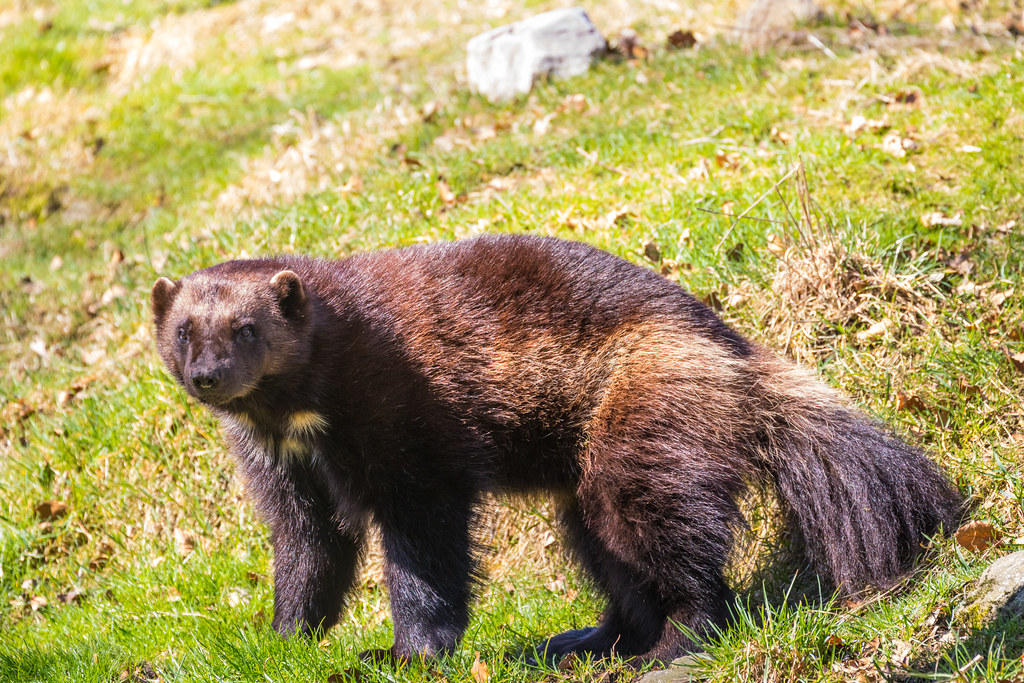
Wolverines are powerfully built and muscular carnivores that closely resemble small bears. They are known for their strength and voracious appetite, with a reputation for ferocity and fearlessness out of proportion to their size.
Wolverines are solitary, aggressive, and have a strong predatory instinct. They have been known to take on animals much larger than themselves, such as moose or caribou. This makes them potentially dangerous as pets. They are also extremely territorial, needing large ranges to roam and hunt, which a typical home cannot provide.
Wolverines are not suited to life in captivity. They have specific needs, such as a cold climate and a wide range of hunting, which are nearly impossible to meet in a domestic setting. In many countries, it’s illegal to own a wolverine without specific permits, usually granted only to zoos, research institutions, or licensed wildlife rehabilitators.
Snakes
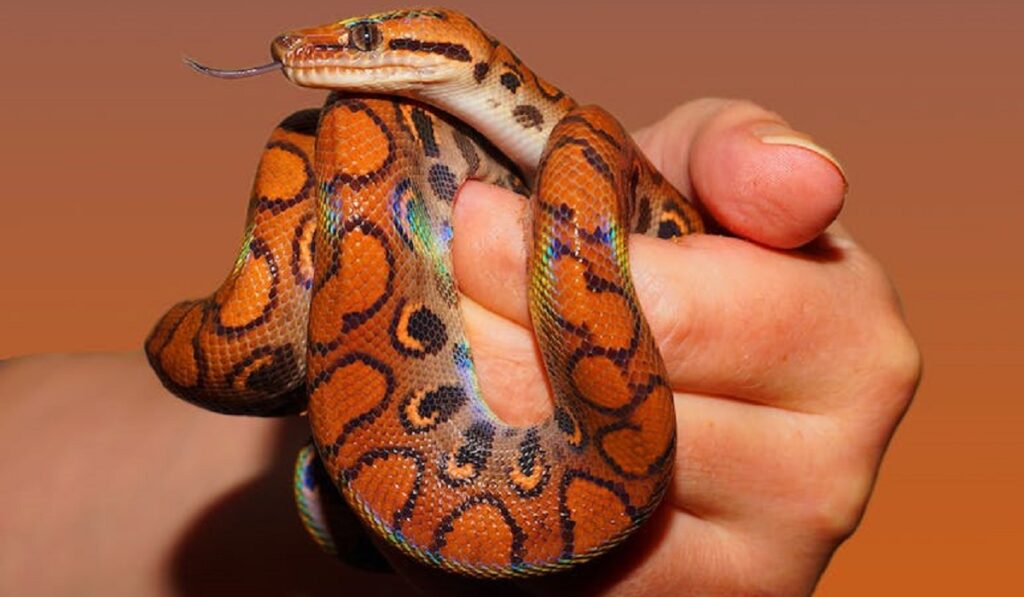
This is a large category, and many states have laws governing snakes, venomous snakes, and protected snakes.
The definition of dangerous exotic pets can be vague, and all persons must comply with state laws and research which specific animal falls under what category. Only 21 states ban all dangerous exotic pets.
Demand for Ball pythons has seen staggering increases in exports from West Africa, and at least three million pythons made the trek to private residences. The USA is the largest importer, and the reptile trade is 20% of the global exotic pet market.
Millions of animals die en route. Further, a venomous snake is best left to the care of wildlife service experts. Despite our fear, these snakes are super beneficial, and their venom saves thousands of lives.
Turtles
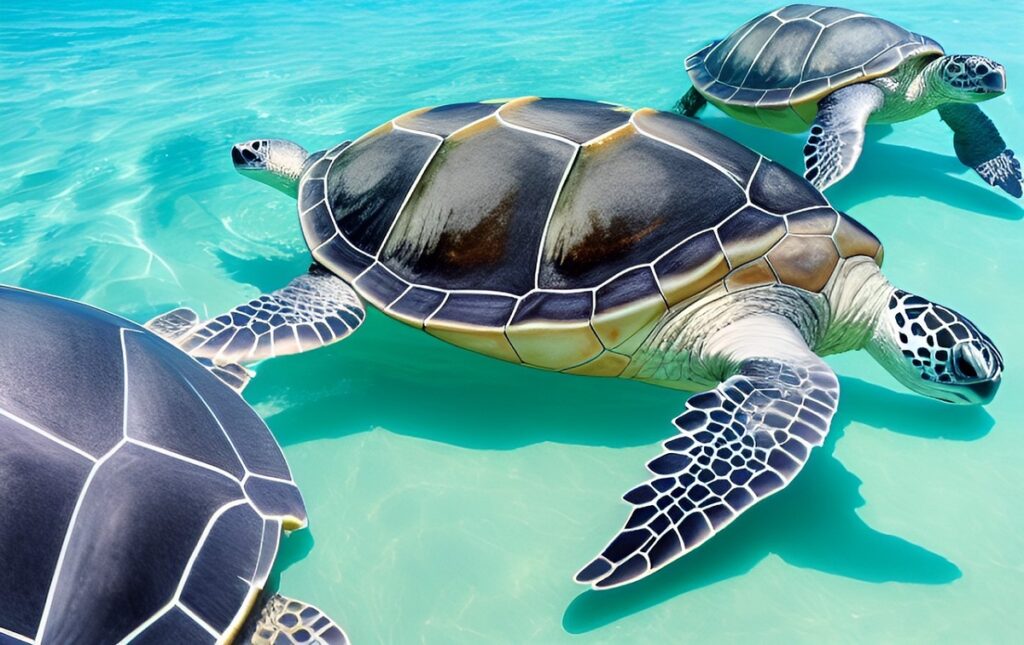
Some turtle species are legal, but small turtles with a shell under four inches have been banned since 1975 to prevent salmonella outbreaks. Sadly, unscrupulous sellers still sell these reptiles for scientific and educational purposes despite being illegal.
Some states have specific laws that apply to snapping turtles. Another reason turtles and tortoises are illegal is that many species are endangered. North Dakota and North Carolina prohibit turtle ownership.
Slow lorises
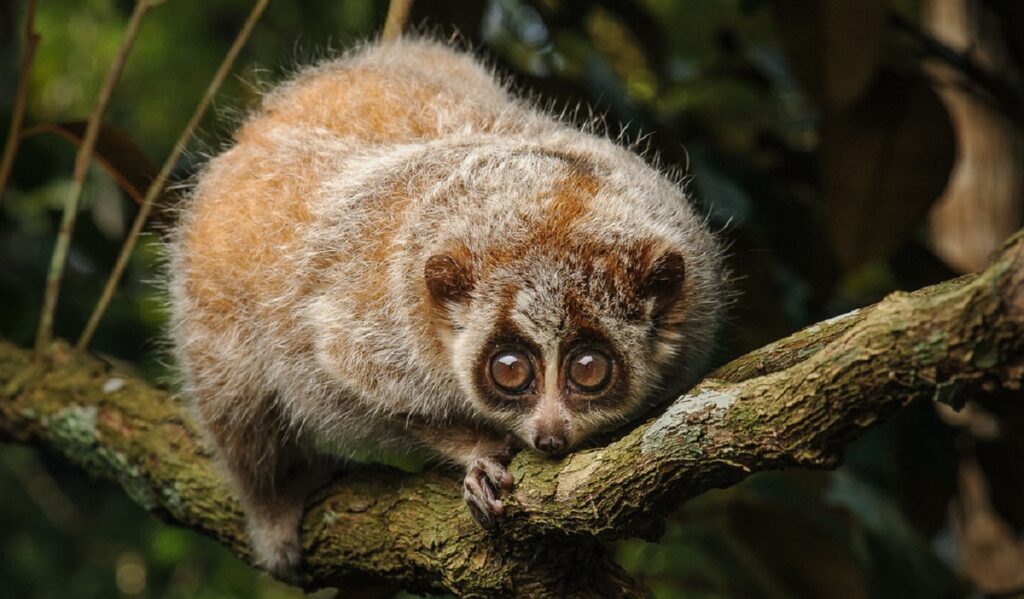
These big-eyed creatures are primates and therefore fall under the primate/monkey category for keeping exotic illegal pets. Slow lorises fall under legal protection status because most nations they inhabit have strict laws protecting them.
Most likely, if you are offered a slow loris for sale, it’s from the illegal black market trade and animals that are illegal to own.
Tokay Geckos
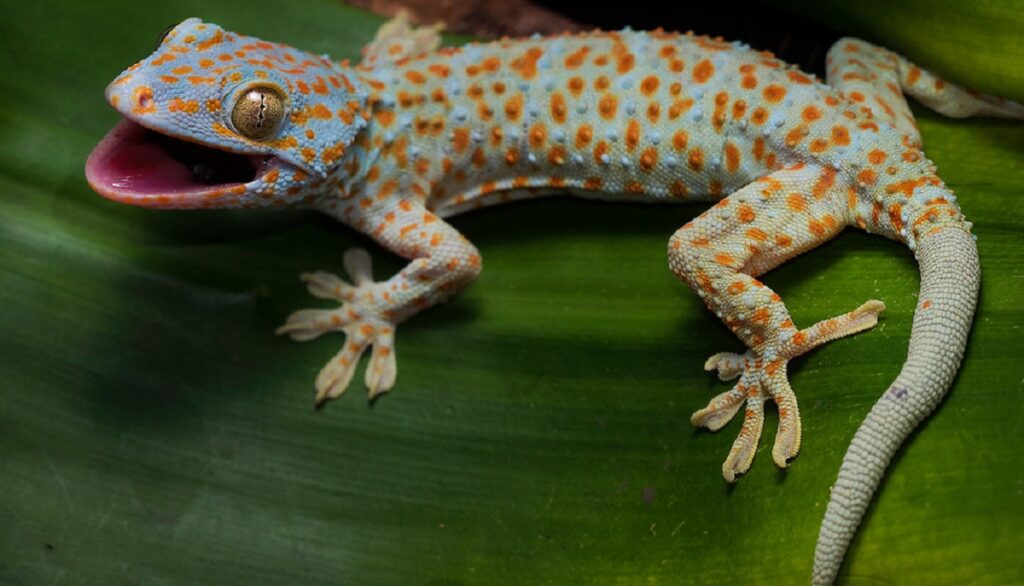
Tokay farming and laundering have become big businesses. Tokay geckos taken from the wild are illegal to keep. Tokay are much sought after because of their brightly colored skin and large size. They’re native to Southern Asian countries. Millions are captured and used in traditional Chinese medicine and as pets shipped to Europe and the USA.
Unfortunately, no conservation efforts exist to protect these critters, and Indonesia set a new quota of 1.8 million.
Bengal Cats
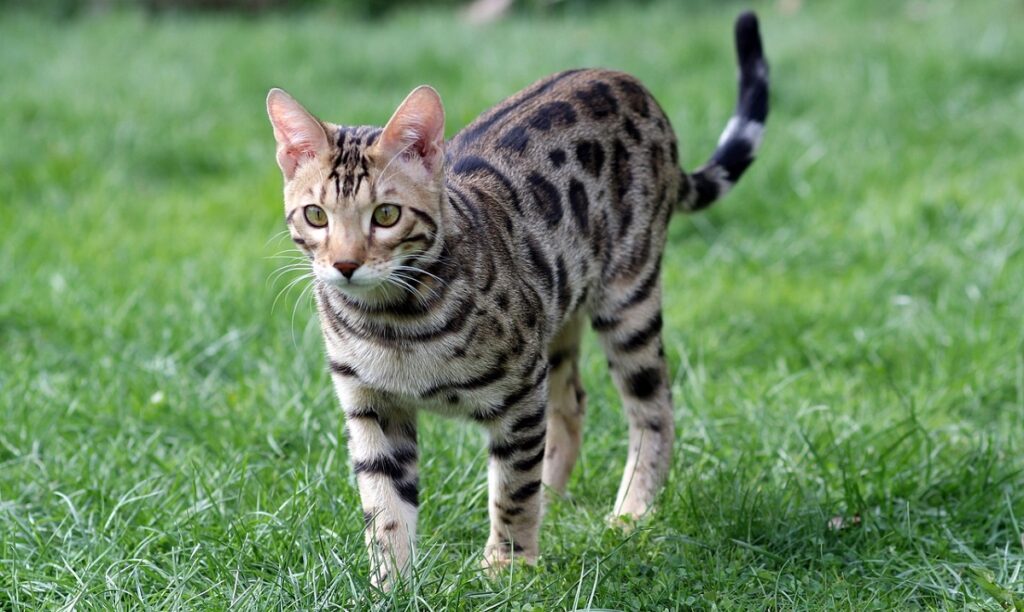
Bengal cats are extraordinarily beautiful hybrid cats bred from Asian leopard cats and domestics like the Egyptian Mau.
Some states prohibit hybrid cats unless they’re of a specific generation. Always check with local authorities about the cat and exotic animal bylaws before spending $2500 on a feline you can’t legally keep.
Gerbils
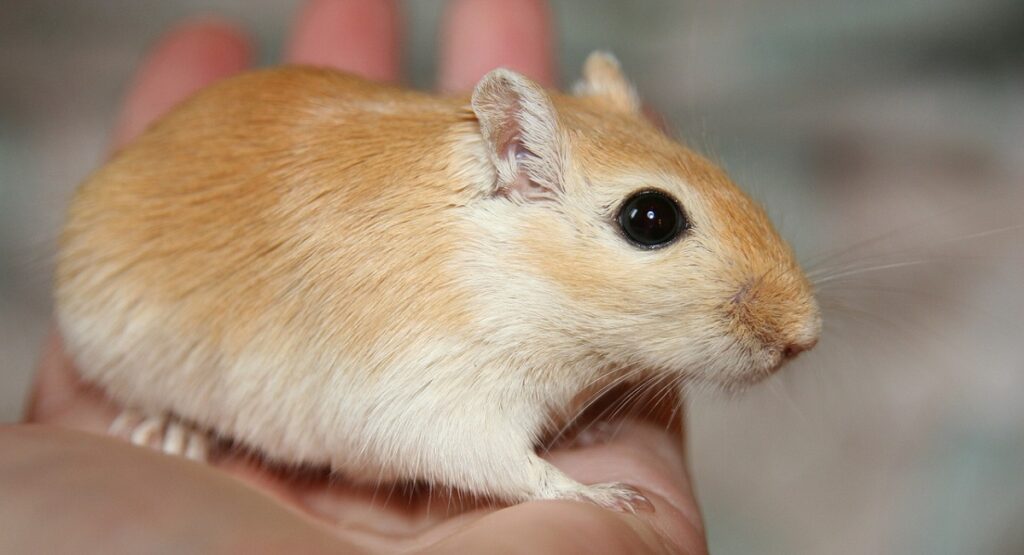
Most children either meet their first gerbil at school or keep a pet gerbil at home. Mongolian gerbils are small rodents that resemble mice. They’re legally sold in pet stores throughout the USA, except for California and Hawaii.
Some locations with similar geographics to the gerbil’s natural habitat could turn this cute critter into an invasive species that form colonies and become detrimental to the native plants and other animals and local agriculture.
Capybara
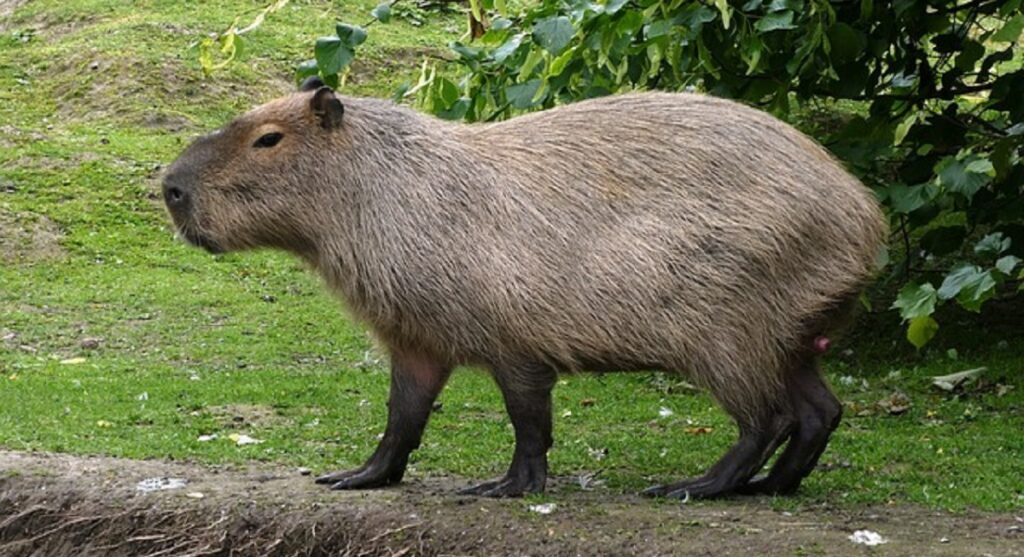
Capyaras are the largest rodents on the planet and are native to South America. It’s related to guinea pigs and a cousin a few times removed to the agouti, chinchilla, and nutria.
Capybaras need a large enclosure to thrive and are banned in Georgia and California. If you live in Texas, Pennsylvania, and New York, you can own a Capybara as a pet. However, some cities have unique bylaws that make them illegal–as in New York City.
African Clawed Frog
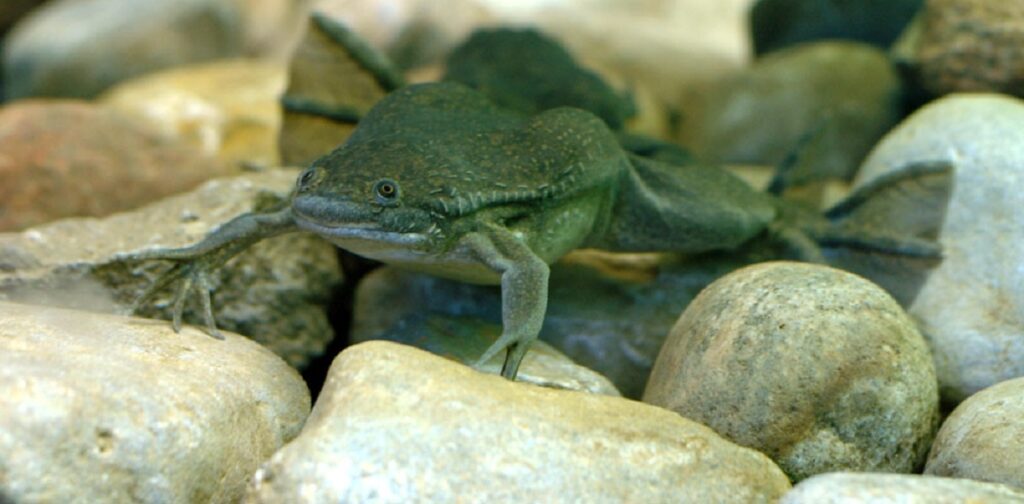
One frog can decimate an entire native wildlife species of amphibians. African clawed frogs might appeal to some, but Arizona, California, Hawaii, Kentucky, Louisiana, Nevada, New Jersey, North Carolina, Oregon, Virginia, and Washington make it illegal to own one.
African clawed frogs carry a fungus that spreads to other frog populations, making them part of the notorious banned animal list.
Since these frogs also reproduce rapidly, they invade the habitat of native animals.
Squirrels
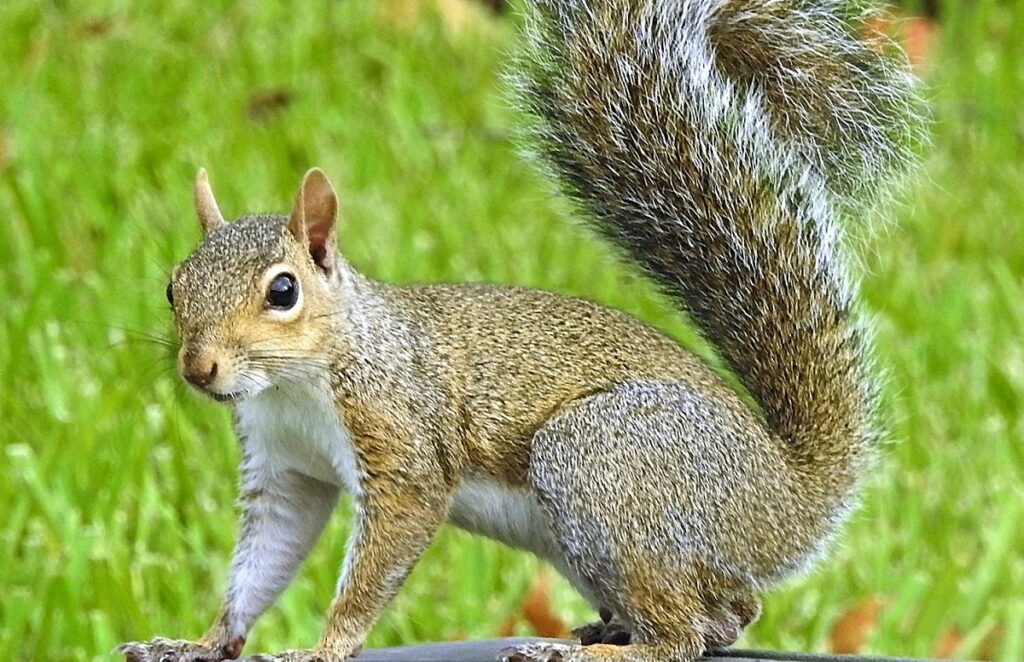
This busy rodent family is native and also invasive. Most of us are familiar with the cheek stuffing, flower bulb rearranger, and acrobat that lives in our yards. Squirrels don’t make good pets as they need ample space to roam and can destroy homes and the interior of cars.
In 26 states, like Wisconsin, Alabama, Alaska, and New Hampshire, it’s illegal to keep a pet squirrel.
Illegal Exotic Pets
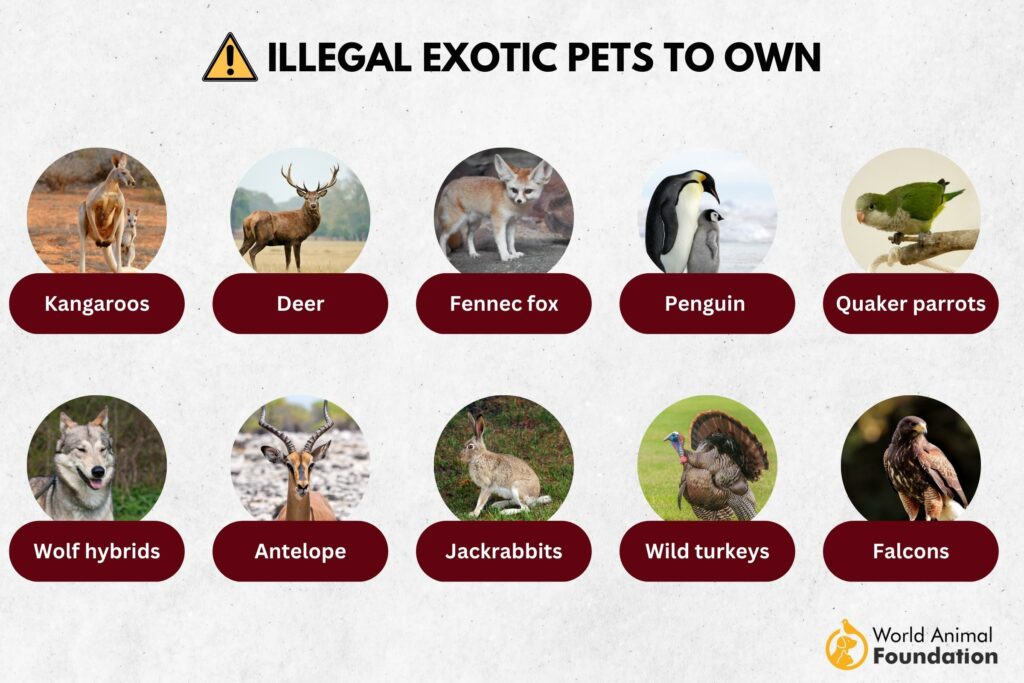
At World Animal Foundation, we understand people’s fascination with various creatures. But not all animals make good pets, regardless of how cute or creepy.
Kangaroos
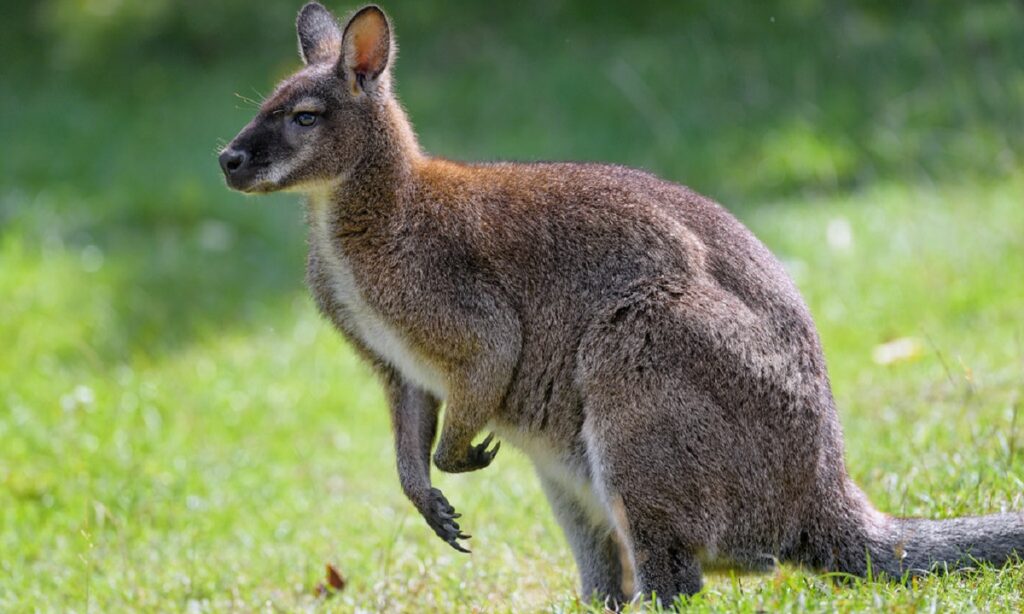
This downunder marsupial is laid back and happy to go about its business. When threatened, it can land a seriously devastating kick. Only a few states allow kangaroo ownership without specific permits or licenses, like Illinois, Idaho, Maine, New Jersey, New Mexico, Nevada, Ohio, Pennsylvania, South Carolina, Texas, Washington, West Virginia, and Wisconsin.
The rest of the USA makes it illegal to keep a pet kangaroo.
Deer
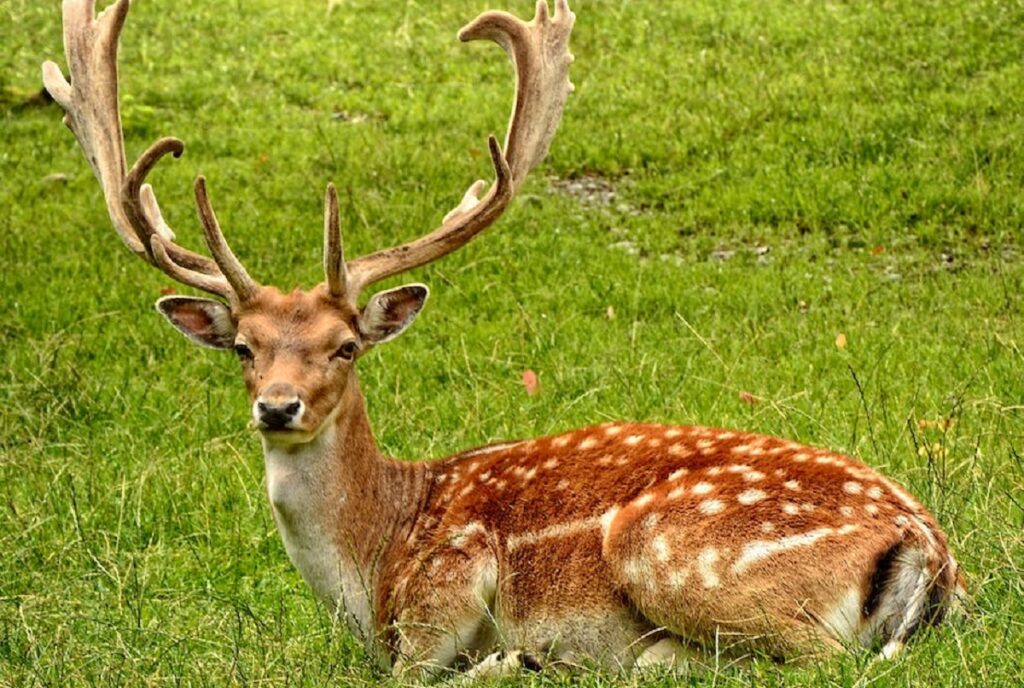
Many species of deer, like red deer, white-tailed deer, and others, roam in our woods and pastures freely. However, owning a pet deer is illegal in most states. Colorado, New Hampshire, South Dakota, and Vermont require special permits and other licensing requirements.
Deer are free-spirited and territorial and don’t like to be confined or share their space with people.
Fennec Fox
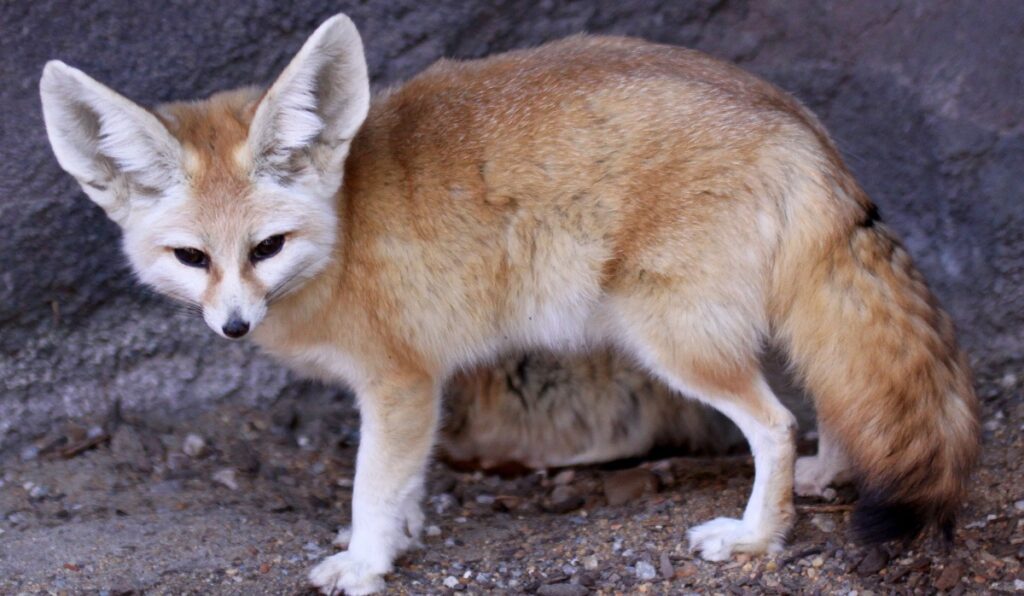
Native to Northern Africa, Fennec foxes are the smallest foxes on Earth. Big-eared and cute, these hunters are legal in several states. Delaware, Florida, Maine, North Dakota, Rhode Island, South Dakota, and Wisconsin only require proper documentation and health evaluations.
In Florida, owners also need a Class 3 permit. In their natural habitat, this nocturnal creature faces habitat loss and hunters who want their fur.
Penguin

Penguins are not legal pets unless owned by an institution like a zoo. The AWA governs all animals though it doesn’t protect all species from abuse. Penguins are strictly protected the world over. These aquatic birds do not make great pets. They have complicated dietary and social needs and a highly specialized habitat.
Penguins are one of the most vulnerable and endangered sea birds.
Quaker Parrots
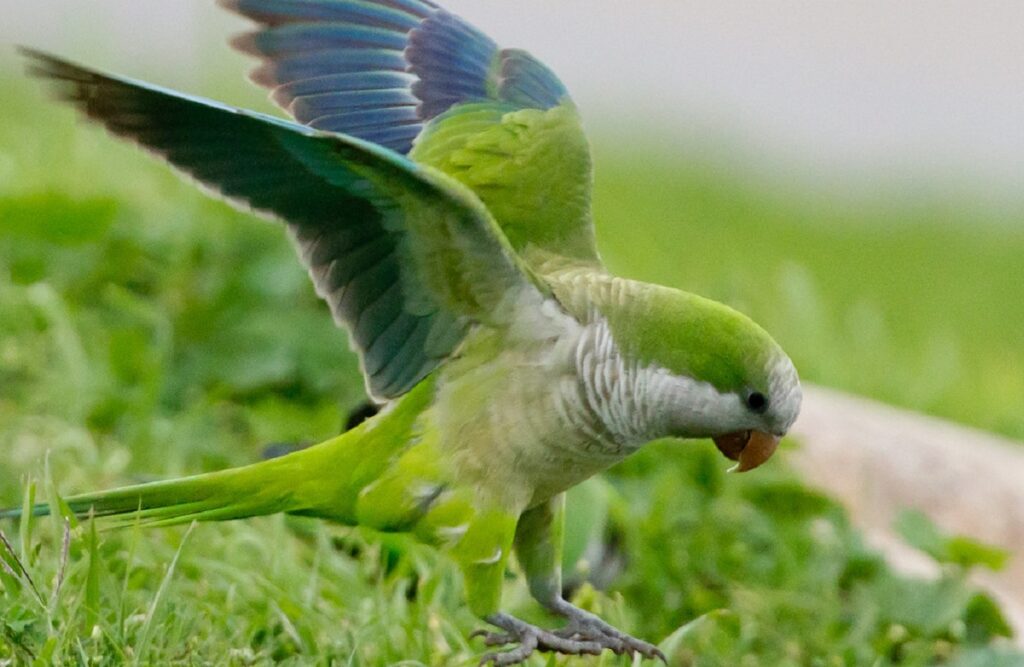
Quaker parakeets can adapt quickly to new environments, which makes them prone to becoming an invasive species that harm native animals and local farms. Quaker, also Monk, parakeets are illegal in California, Connecticut, Colorado, Georgia, Hawaii, Kentucky, Pennsylvania, Rhode Island, Tennessee, and Wyoming.
Other states require microchipping to keep track and have a permit; consult local laws in Maine, Ohio, New York, Virginia, and Vermont. Like the ring-necked parakeet in London, UK, they form colonies and become a nuisance.
Wolf Hybrids
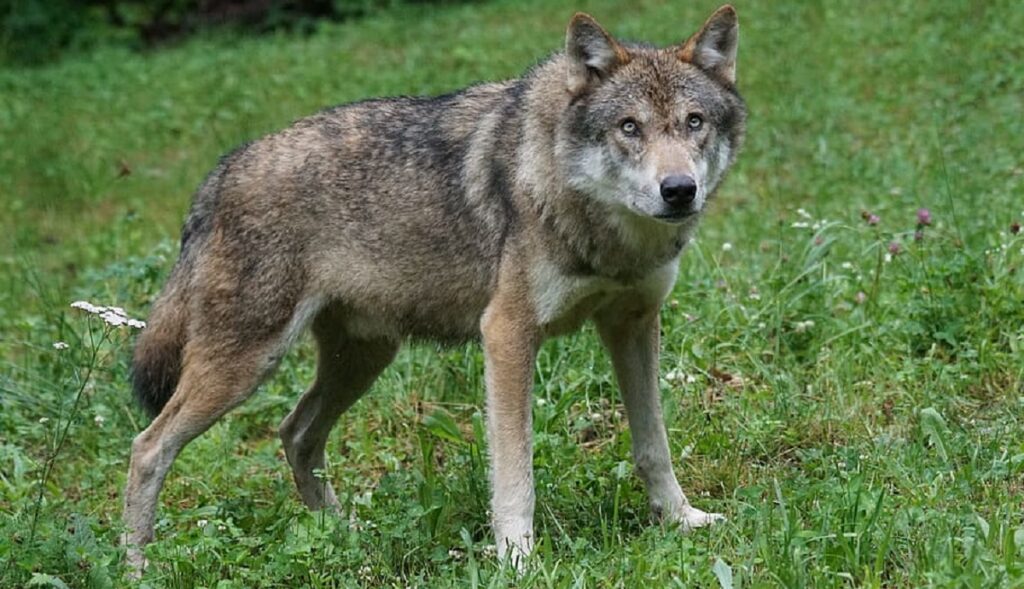
Wolfdog hybrids are illegal in Connecticut, D.C., Georgia, Hawaii, Illinois, Massachusetts, Maryland, Michigan, New York, Pennsylvania, Rhode Island, and Wyoming as pets.
In Michigan, a hybrid wolfdog has special compensation if it’s grandfathered. Like their ancestors, wolves and their cousins are challenging to domesticate. They’re prone to escape and can exhibit aggressive behavior.
Antelope
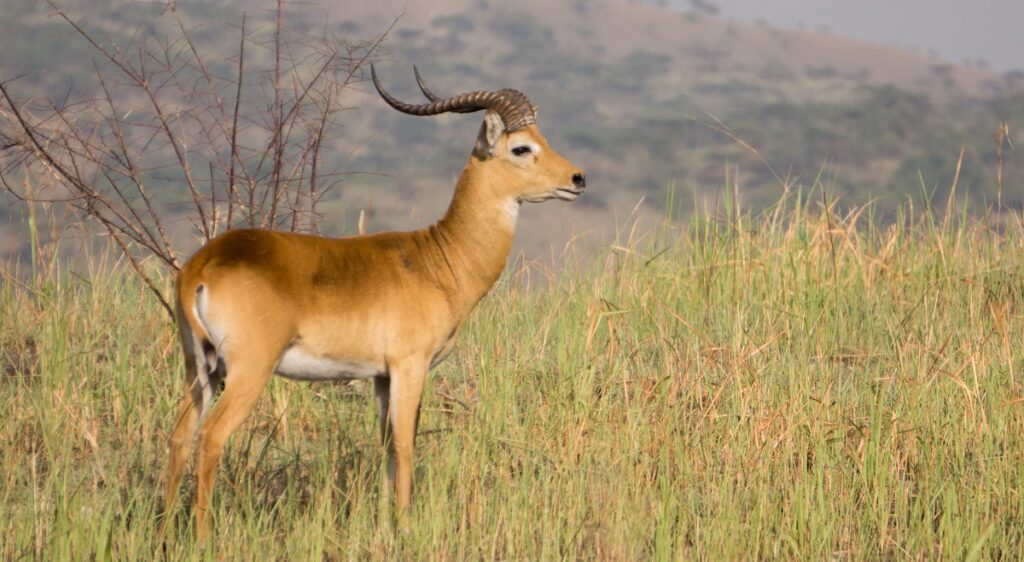
There are many deer farms in the USA. These farms breed these animals for meat, as a hunting resource, and provide farmers with a lucrative alternative to traditional farming.
Many USA farms raise species from the deer family, including antelope, for trophy hunting. Each state has a set of laws governing deer and antelope ownership.
Jackrabbits
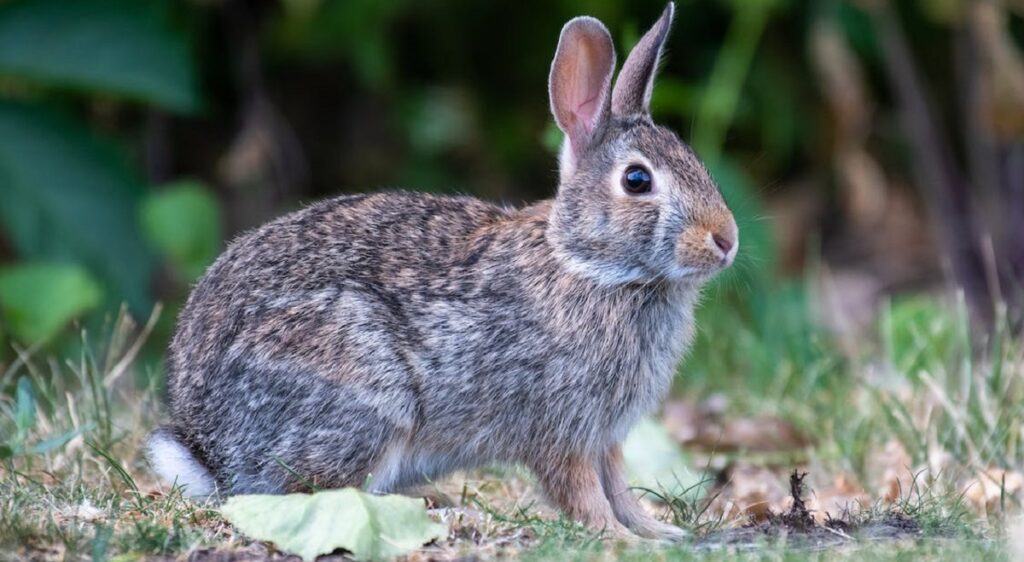
The white-tailed jackrabbits belong to the hare family. They’re not legal in Alabaman, Arkansas, or Kentucky to dissuade hunters from capturing wild hares with the intent of domesticating them.
Jackrabbits rank among the fastest land animals and can reach up to 45 mph when outrunning predators.
Wild Turkeys
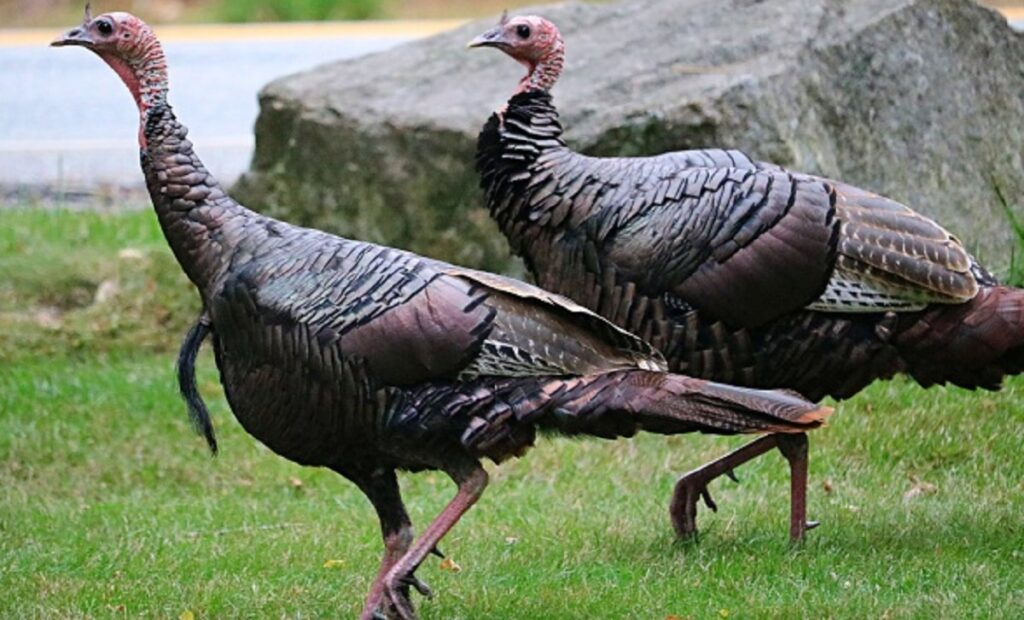
Laws in every state differ for keeping wild or exotic animals. In 2020, updated laws ban more animals from being kept as pets. Wild turkeys may fall into a banned animal group; always check with local legislation.
Wild turkeys are intelligent fowl animals and require a large habitat to forage.
Falcons

Only falconers with a license can own falcons in the USA. Keeping falcons requires one of three licenses: apprentice, general, or master class.
Falcons belong to the raptor family and have unique feeding and habitat requirements.
Other Animals Illegal To Own in the US
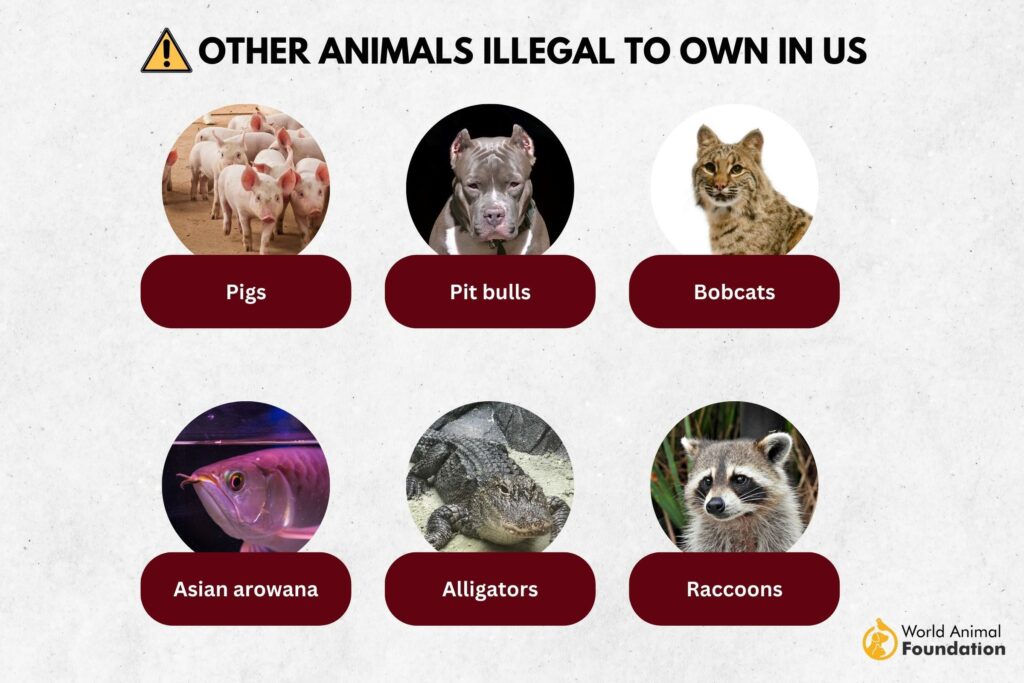
Always check local resources about keeping any animal as a pet.
Pigs
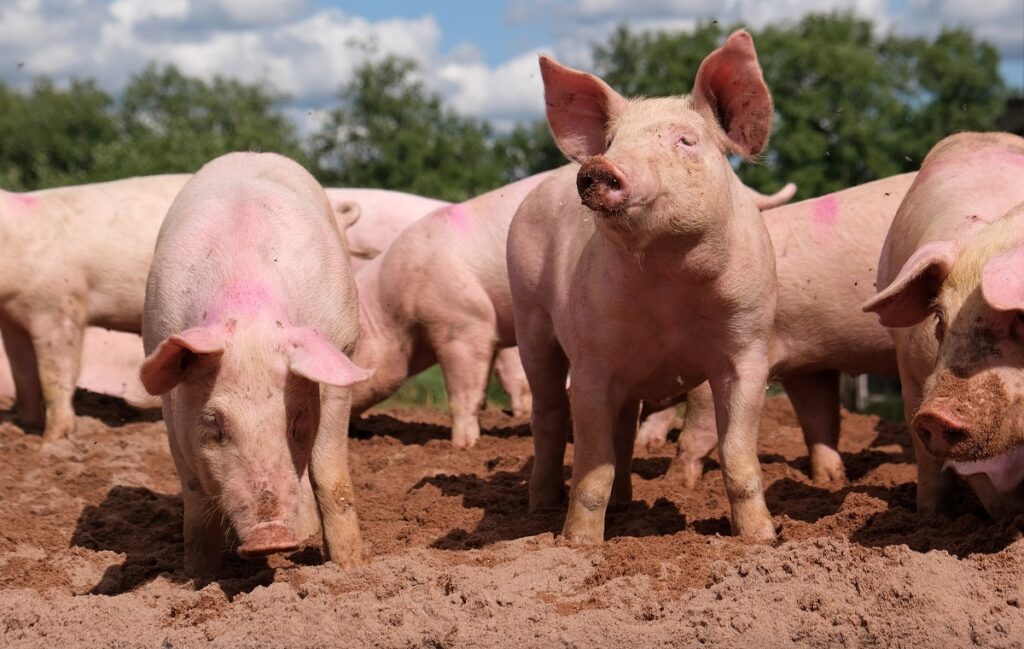
We can eat them, but owning or keeping them as pets has rules. Pet pigs, or mini pigs, are trending. Many pig owners don’t know these mini or teacup piglets will eventually grow into their 100-pound genes.
Pigs are super intelligent sentient beings; New York City and many others forbid keeping ‘farm animals‘ inside city lines.
Pit Bulls

Nothing starts conflict like pitbull ownership. Pit bulls include several terrier groups like Staffordshire Bull Terrier, American Pit Bull Terrier, Miniature Bull Terrier, American Staffordshire Bull Terrier, American Bulldog, and any mixes.
Outlawed pit bull ownership is prevalent in as many as 700 cities. Some cities require owners to buy liability insurance, a muzzle, and proper fencing. Breed-specific laws are hotly debated.
Bobcats
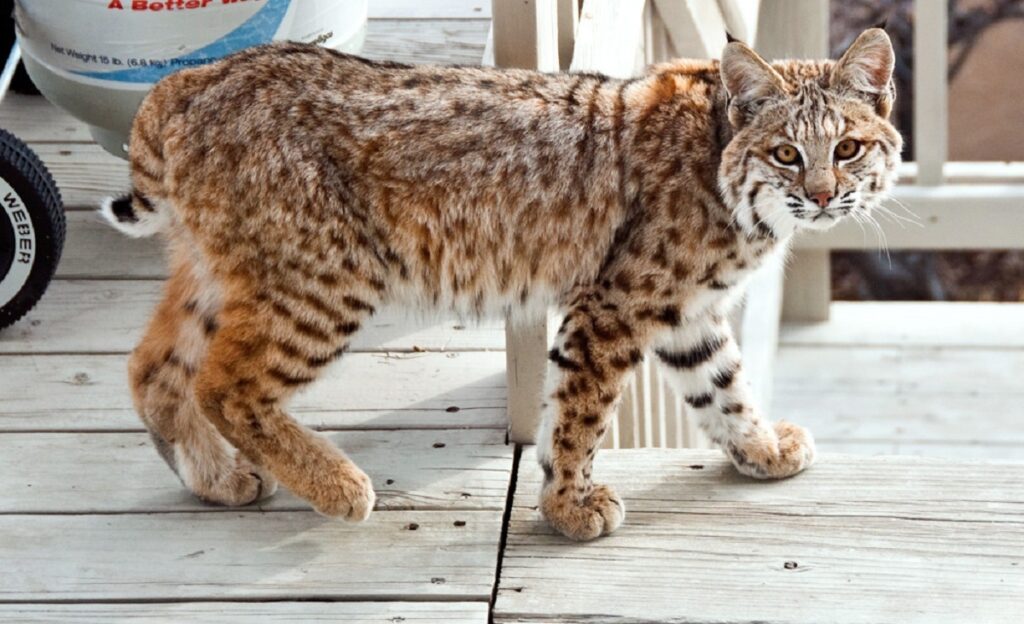
Bobcats are elusive residents in North America. It’s possible to keep a bobcat in Alabama, Nevada, North Carolina, South Carolina, and Wisconsin, though you may need a special permit. Other states make it illegal because bobcats are dangerous predators that can harm people and domestic animals.
If you live in Arkansas, you can own up to six bobcats at a time.
Asian Arowana
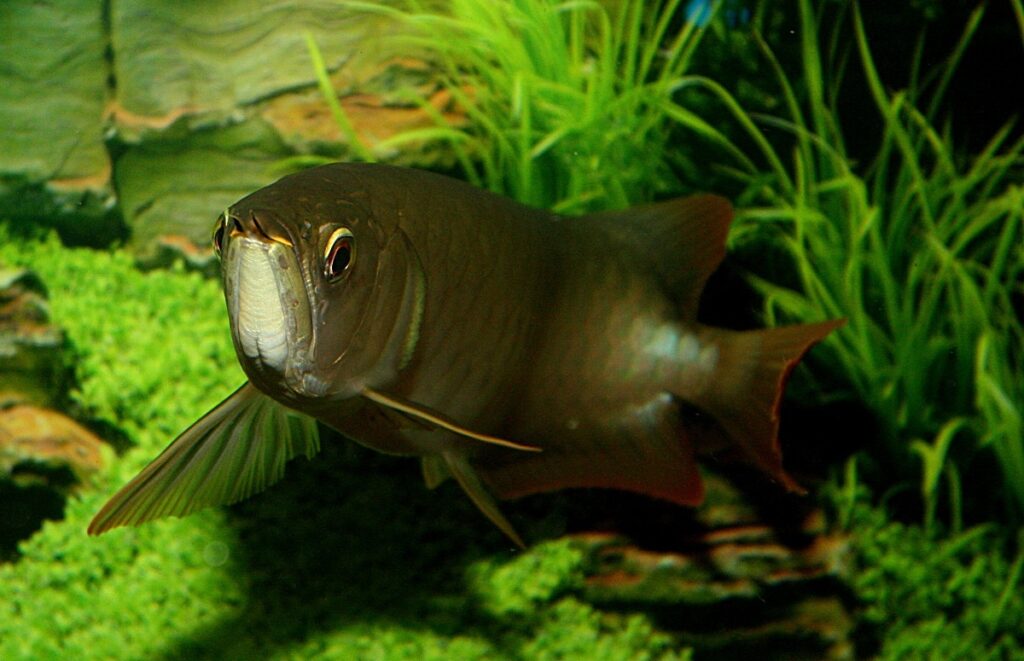
Even if you can afford to spend a hefty $150,000 per Asian Arowan, these critically endangered fish are illegal in the USA.
Asian Arowana is not only rare, but they’re also a cultural icon of good luck.
Alligators
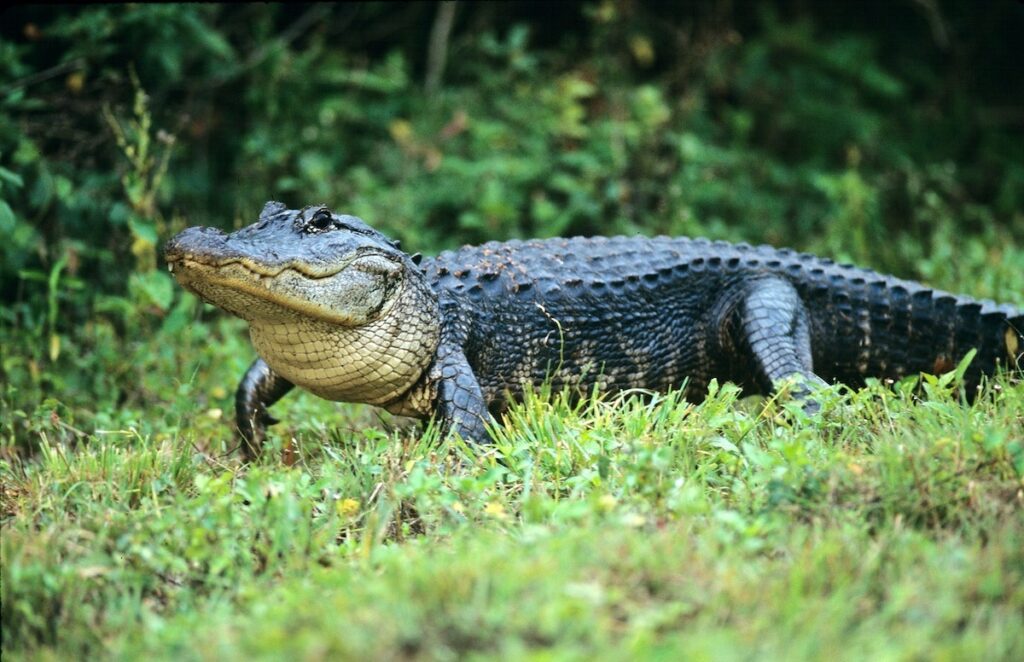
Gators and crocs have populated Earth for millions of years, and in Florida, it’s allowable to keep a pet alligator privately with proper licenses. Eleven states sanction alligator ownership with permits; the remaining states declare it’s illegal.
What’s weird, you can own a pet alligator in Alaska without a permit. These Jurassic reptiles can kill people and pets, and many consequential interactions occur. Just think of the dental bill for keeping one as a pet.
Raccoons
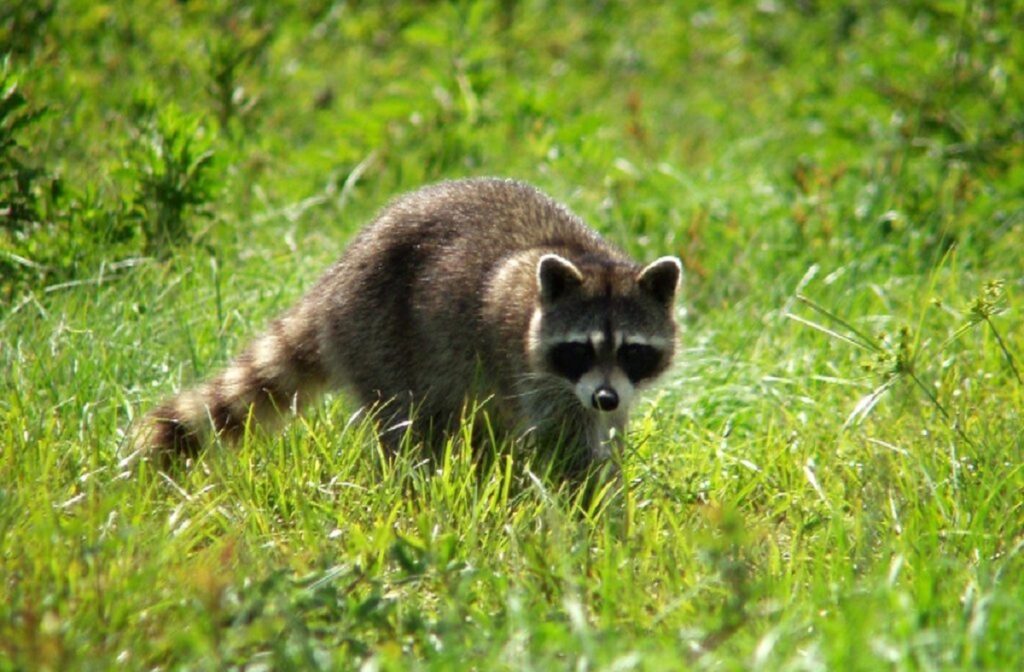
These masked bandits are clever and can get into trouble quickly with their capricious behavior. Although cute, they can cause serious injury when they become aggressive.
Most states ban raccoon pet ownership, but Arkansas, Delaware, Florida, Indiana, Michigan, Nebraska, Oklahoma, Pennsylvania, Rhode Island, South Carolina, Texas, Wisconsin, and Wyoming say it’s okay.
FAQ’s
Exotic pet ownership laws are complicated.
Where Can You Own a Monkey?
Monkeys fall under the category of primate. In some states, it’s illegal to own a primate or ape.
Alabama, Arizona, Arkansas, Connecticut, Delaware, Florida, Indiana, Kansas, Michigan, Minnesota, Mississippi, Missouri, Nebraska, Nevada, North Carolina, North Dakota, Oklahoma, South Carolina, South Dakota, Tennessee, Texas, West Virginia, Wisconsin, and Wyoming allow monkey ownership but verify if you need a permit.
Can You Own a Lemur?
Lemurs also belong in the primate category, and they’re allowed in Alabama, Arkansas, Illinois, Iowa, Kansas, Maryland, Minnesota, Missouri (illegal in St. Louis), Montana, Nebraska, North Carolina, North Dakota, Ohio, Pennsylvania, South Carolina, Virginia, Washington, West Virginia, and Wisconsin but always check on law amendments.
What Are the Illegal Animals in Michigan?
Michigan has specific laws banning large carnivores like big cats and bears unless they’re grandfathered.
Domesticated Animals and Banned Animals That Are Illegal to Own
Whether we speak of small shark species, venomous snake species, native species, or domesticated animals, some animals should be universally outlawed to own as pets in the U.S.
Many exhibit potentially life-threatening, unpredictable behavior, while others aren’t completely rabies free. Sometimes outlawing private ownership is the right choice.


